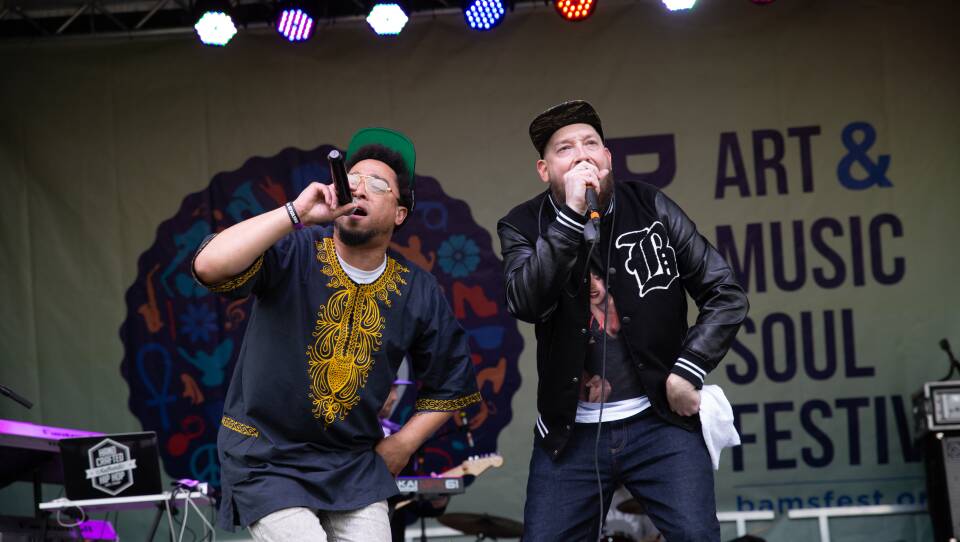Fifty years ago today, DJ Kool Herc and his sister Cindy Campbell organized a back-to-school jam in the Bronx. The block party would grow into the biggest thing in music since rock 'n’ roll — hip-hop.
To recognize the anniversary of hip-hop’s inception, a free festival is taking place this Saturday at Boston City Hall Plaza. GLD FSTVL (pronounced as “gold festival”) is curated by the legendary and award-winning Boston hip-hop crew STL GLD (pronounced as “still gold”).
“It's a great opportunity to showcase Boston's talents … whereas there were a bunch of venues and places to perform in the city that have closed down over the years,” Moe Pope, STL GLD’s front man and co-producer of the festival, told Boston Public Radio on Friday.
The hip-hop festival is also significant for a city like Boston, where hip-hop artists have historically struggled to find venues that will host them.
“We weren't allowed to perform at a lot of venues in the city, although they were playing our music on their speakers,” said Pope.
Now, Boston's history in the growth of the hip-hop genre can be on full display. Groups like The Almighty RSO (hailing from Dorchester), the Floor Lords and others have taken the stage in Boston.
Today on @BosPublic Radio @STLGLD performed ahead of their inaugural GLD FSTVL this Saturday from noon to 10 p.m. in City Hall Plaza. This is "Resisting": pic.twitter.com/A62BCLKXKN
— GBH News (@GBHNews) August 11, 2023
“There's a lot of greats that have performed here,” said Pope. “But the biggest thing is that we're now being recognized as a great art form.”
This recognition comes from the Mayor’s Office of Arts and Culture, which is funding the event. Billy Dean Thomas is Boston City Hall Plaza’s Engagement Manager and helped organize GLD FSTVL, in addition to other community activities on the plaza.
“We really want to put the power back into the community's hands so that they can actually sculpt the plaza. Because it's the people's plaza,” said Thomas. Thomas is also a hip-hop artist in their own right and will be performing this weekend.
For Tim Hall, STL GLD member and professor at Berklee College of Music, a hip-hop festival in the heart of Boston is significant. He said it’s about more than the music.
“Hip-hop culture is one of the only art forms that have been consumed on a global level. However, there's still an erasure or a commodification of Blackness,” Hall said.
“It takes individuals in this community…valuing this art form and our people, our community, enough to put resources behind it and say like, “Yo, we're going to center this, we're going to amplify it.”





